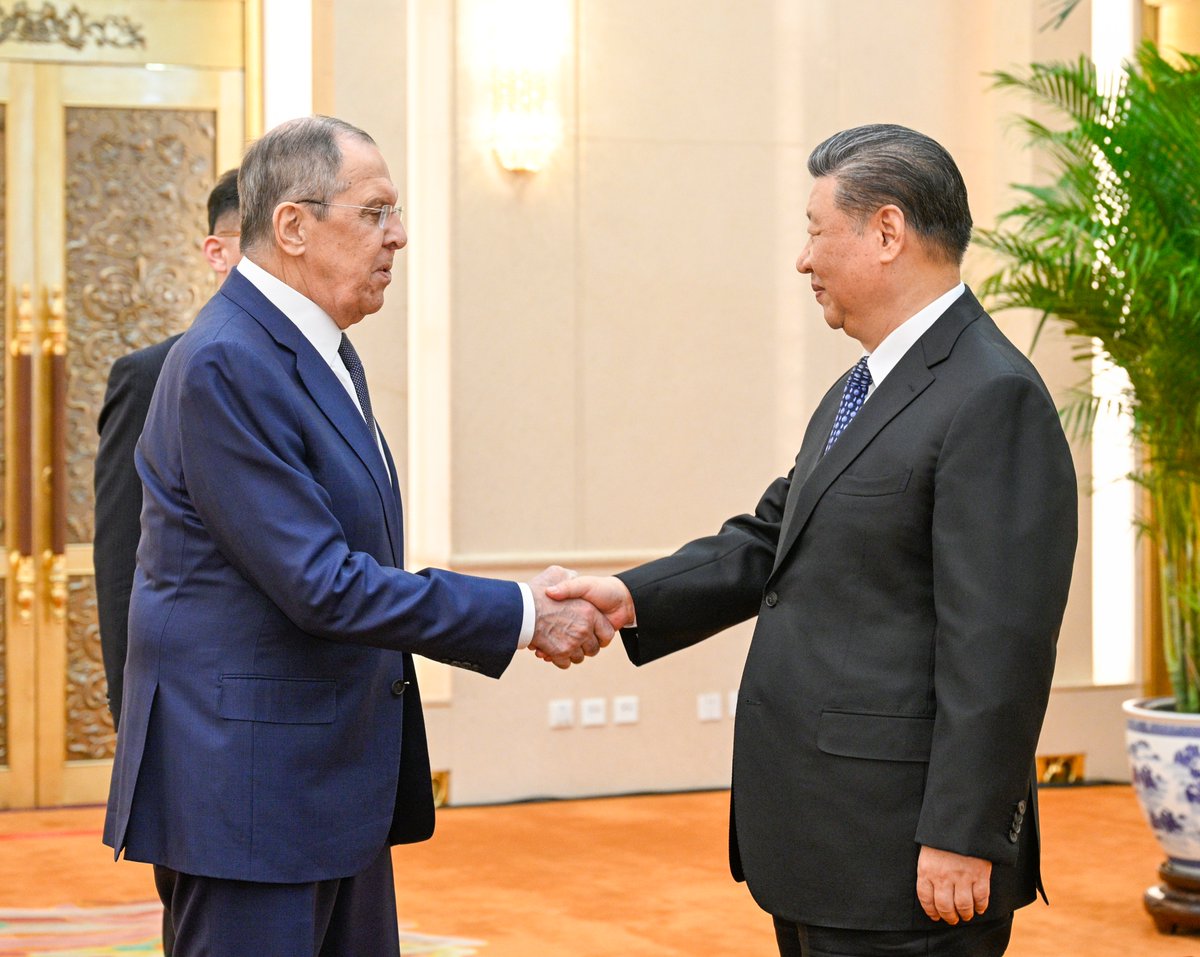According to top officials in the Biden administration, China is playing a crucial role in bolstering Russia’s defense industrial capabilities, facilitating Moscow’s most significant military expansion since the Soviet era amid the ongoing conflict with Ukraine.
Officials claim that China’s assistance includes a wide array of resources, including machine tools, drones, and turbojet engines, as well as technology crucial for cruise missiles, microelectronics, and nitrocellulose, which Russia utilizes in weapon propellant production.
Furthermore, collaborative efforts between Chinese and Russian companies have been observed in the production of drones, underscoring the depth of cooperation.
This support from China significantly enhances Russia’s capacity to sustain its operations in Ukraine, a stark contrast to the challenges faced by the Ukrainian military due to equipment and weapon shortages, the report says.
Complicating matters further, US Republican lawmakers persist in blocking a vote on a new military aid package for Kyiv.
Earlier, in a recent stern message, the United States warned that Beijing would be held accountable if Russia made further inroads into Ukraine.
During a Town Hall event organized by the National Committee on US-China Relations on April 9, Deputy Secretary of State Kurt Campbell underscored the importance of maintaining peace and stability in Europe and labeling it a historical priority for the US government.
Campbell minced no words as he articulated the gravity of the situation, stating, “If Russian offenses continue and they gain territory in Ukraine, that will alter the balance of power in Europe in ways that are frankly unacceptable from our perspective.”
The dire warning was not merely rhetorical posturing. Campbell made it unequivocally clear that the United States had directly conveyed its concerns to Chinese authorities regarding the potential repercussions on the US-China relationship should Russia escalate its actions in Ukraine unchecked. “We will not sit by and say everything is fine,” he affirmed.
Ukrainian President Volodymyr Zelenskyy’s recent cautionary note about the possibility of a fresh Russian offensive in the coming months only intensifies the apprehension.
Campbell elaborated on this, expressing concern that such aggressive maneuvers could not be viewed in isolation but rather as part of a concerted effort involving not only Russia but also China and North Korea.
Campbell added that the Biden administration had forewarned Chinese officials about intelligence indicating an impending Russian invasion of Ukraine back in February 2022.
However, Chinese authorities appeared to be skeptical or underestimating the scale and gravity of the situation. Campbell noted, “I’m not sure they completely believed us or thought that maybe it would be a smaller thing, not an all-out move and push.”
Campbell mentioned that China reacted with concern to Russia’s initial setbacks in the war and took steps to enhance Moscow’s capabilities. Initially, this was aimed at defense, with a focus on preventing regime change.
However, according to Campbell, Russia has undergone extensive reorganization and emerged as a significant future threat to Ukraine and the neighboring area as time has passed.
Growing Relations Between Moscow & Beijing
Deputy Secretary of State Kurt Campbell’s recent remarks on China’s potential support for Russia come against the backdrop of heightened diplomatic engagements and burgeoning solidarity between Moscow and Beijing.
The statements were made a day after Russian Foreign Minister Sergey Lavrov met with Chinese President leader Xi Jinping.
Lavrov’s visit to China, where both leaders jointly condemned Western-led “bloc confrontation” and advocated for reform in the global system, served as a symbolic display of unity between the two neighboring nations.
This demonstration of solidarity follows the elevation of bilateral ties between Putin and Xi to a “no limits” partnership just before Russia invaded Ukraine in February 2022.
This deepening relationship is reflected in the substantial increase in trade between the two nations, with China’s official data indicating a surge to $240 billion in 2023, marking a notable 26.3 percent increase from the previous year.

A significant portion of Russia’s oil and petroleum exports in 2023 found their way to China, with approximately half of these exports being directed to the Asian giant, as reported by Russian state-owned news agency TASS in December 2023, citing Russian Deputy Prime Minister Alexander Novak.
On the other hand, the Biden administration has cited China’s closer relations with Russia as a key factor in strengthening alliances with countries such as Japan and the Philippines.
Moreover, Campbell’s remarks come amid heightened bilateral tensions between the United States and China, with both sides grappling with contentious issues that appear increasingly difficult to resolve.
One of the primary points of contention between the United States and China revolves around restrictions on sales of advanced technology. The Biden administration recently moved to block Chinese firms from acquiring cutting-edge semiconductor chips and receiving investment for developing key technologies such as artificial intelligence.
Beijing has expressed staunch opposition to these measures, characterizing them as a continuous effort to suppress China’s economy, trade, science, and technology.








